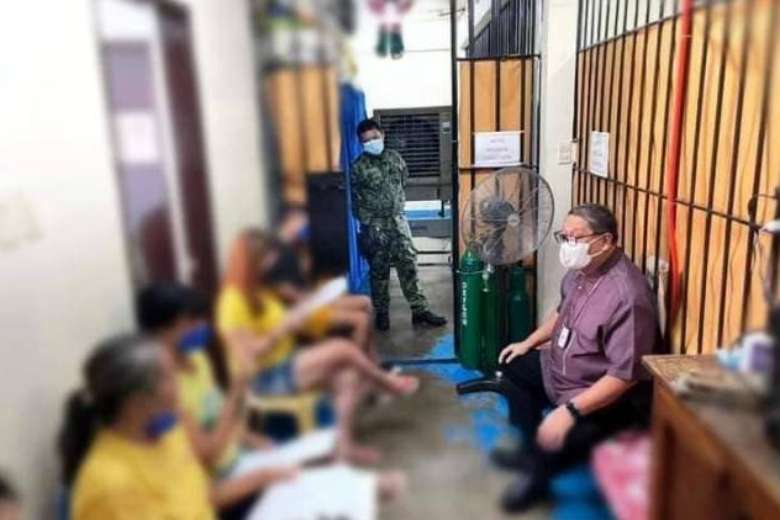Synodal path on track in Philippines
The synodal process in the Philippines is no longer only an assembly of bishops but a journey for all the faithful in which every local church has an integral part to play, says a Catholic leader.
Feb 26, 2022

MANILA: The synodal process in the Philippines is no longer only an assembly of bishops but a journey for all the faithful in which every local church has an integral part to play, says a Catholic leader.
Bishop Mylo Vergara of Pasig, who is also vice president of the Catholic Bishops’ Conference of the Philippines (CBCP), is confident all dioceses in the Philippines have accomplished the appointments of diocesan point persons and coordinating teams at local levels.
The coronavirus pandemic posed a big challenge in the pre-synodal process as local lockdowns and travel restrictions slowed down the face-to-face consultations and the diocesan efforts “to reach out to other sectoral groups that need to be heard and listened to,” said Bishop Vergara.
But this had been overcome along with the other challenge posed by Typhoon Rai that devastated parts of Mindanao and the Visayas in December, the CBCP vice president added.
In his Pasig Diocese, Bishop Vergara said that the diocesan phase, which was foundational to the entire synodal process, was carried out by the diocesan team, which “conducted a series of orientations with training modules, updating of the consultation process for priests, religious, parish lay servants and sectoral representatives on how to facilitate the diocesan consultations in the parishes, schools and other sectors.”
He sought to assure that this was also true with other dioceses.The pre-synodal consultation saw active participation by 84 archbishops and bishops, joined by some 10,000 priests and 1,000 nuns, who supervised the whole process on the ground.
They covered 69 dioceses in 16 ecclesiastical provinces, five prelatures and seven apostolic vicariates besides the military ordinariate.
Although a “majority of priests in the diocese actively participated in the process,” Bishop Vergara revealed that there were a few ordained ministers at parish level who were simply non-compliant and did not participate due to “authority issues.”
Worldwide, the synodal process at diocesan level began on Oct 10, 2021, and the consolidation and discussions of all the diocesan documentary reports are scheduled in March until August of this year.
The official Synod Secretariat in Rome reported early this month that nearly 98 per cent of all bishops’ conferences worldwide have appointed a person or an entire team to implement the synodal process.
“Many of the faithful perceive the synodal process as a crucial moment in the Church’s life, as a learning process, as well as an opportunity for conversion and renewal of ecclesial life,” reported the Synod Secretariat.
“There is growing awareness that the synodal conversion to which all the baptised are called is a lengthy process that will prolong itself well beyond 2023,” said a Vatican statement. --ucanews.com







Total Comments:0